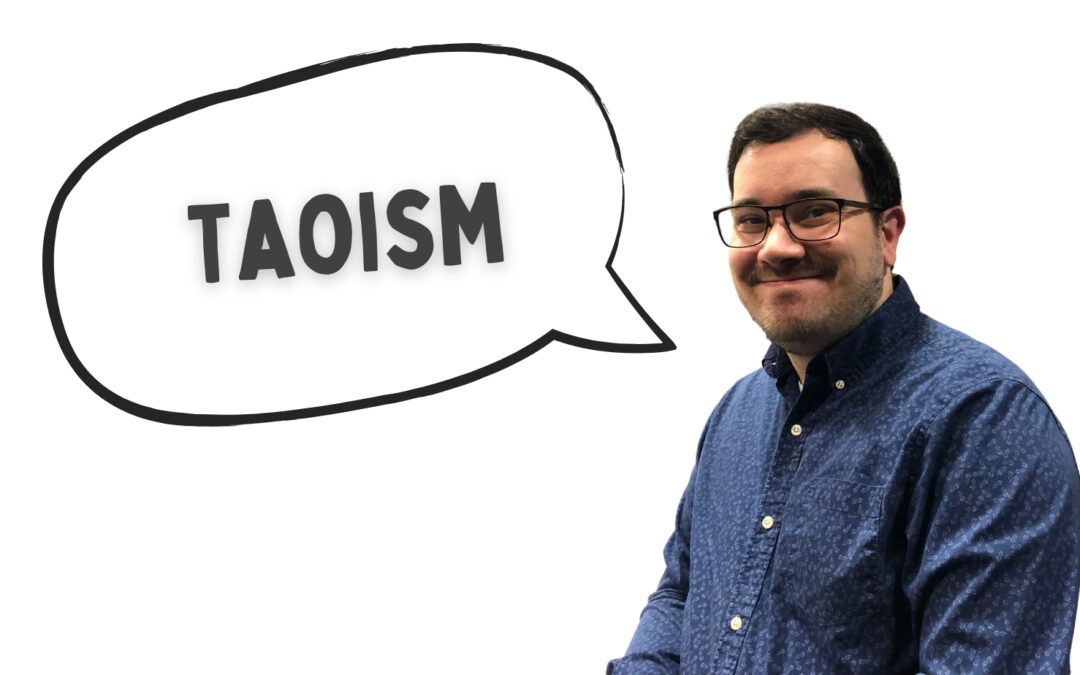Hello & Welcome! Today we’re talking about about Taoism, or Daoism, as it is sometimes called! If your new to the blog allow me to explain, I’m the pocket theologian and here we like to take a theological or philosophical topic and talk about it in as much time as it takes to do it justice. Like I said today we’re talking about Taoism, so we’ll look at the history first, then discuss some notable figures, before finally talking about some misconceptions and some key characteristics, and then wrapping up, so let’s get started.
Intro:
So What is Taoism? Well, Daoism, or as it’s sometimes said Taoism, is an ancient western philosophical and religious system. That focuses on self improvement and harmonizing with nature. Taoism is still very popular in China and Manchuria, and a few other places so make no mistake, Taoism is still very much around. Unlike most of the western philosophies we discussed, which have since become outdated and surpassed by other philosophical systems. The ancient eastern philosophies are all still going strong. Confucianism, Taoism, and Buddhism are all still very much alive. And the three share many differences and similarities but that’s for later in the blog, let’s go ahead and get started with some history.
History:
So Taoism begins with Lao Tzu, who himself begins in China obviously, now Lao Tzu supposedly worked as a records keeper in China, he worked for a court but, much like Confucius became disillusioned with the court’s corruption and vice, so he packed up, saddled up his handy water buffalo, and rode to the eastern part of china.
When he arrived there a border official recognized him and asked him to write down his wisdom, this document that Lao Tzu wrote is called the Tao Te Ching, which is the core text of Taoism. After writing the Tao Te Ching, Lao Tzu just up and leaves history, never to be seen again.
Now while this story is certainly romantic, it may not be fully true. Unfortunately, it seems more likely that the Tao Te Ching was written by several authors over many years, kinda like the Bible. But the story of Lao Tzu and the Tao Te Ching have been passed down through Chinese philosophical schools for about two thousand years. Seeping into the culture of China, where like Buddhism and Confucianism it remains until this day.
While this history section is a lot shorter than most of the others that I’ve done, I do find it very fascinating that we’ve looked at two of the three major eastern philosophies, and that after their founding figures pass, there isn’t a second sort of pole bearer to carry on the philosophy. Socratic philosophy had Plato, Stoicism had Crisipus and so on. But not in the east, in the east there isn’t one sole bearer of the torch, but rather the flame just spread throughout the world on it’s own. It seems to me that eastern philosophies care significantly less about their founders that what their founders said. It doesn’t matter who you are but what you know. And to connect this with my theological audience, reminds me a lot of the great schism, which will eventually get its own post here at the Pocket Theologian. But one of the major issues of contention was the idea of the Pope. And having one sole ruler, who is part of a tradition or a passing down. This difference is fascinating.
Notable Figures:
Lao Tzu: The supposed founder of Taoism, Lao Tzu was said to have been incredibly wise with Confucius commenting on his wisdom. However, his biographies and stories about him all seem to be on even shakier ground than even Socrates. Meaning, that much of the information we have about him is largely vague, and sometimes contradictory. His name probably wasn’t even Lao Tzu.
Zhuangzi Or Chuang Tzu: Another notable figure in Taoism, but unfortunately even less is known about him, than about Lao Tzu. However it is known that he authored the Zhuangzi, which is another important text in Taoism, a collection of allegories, parables, fables, and poems. Which detail how a Taoist is to be carefree and live the path in their lives, as we’ll discuss in a moment.
Huangdi: Otherwise known as, the yellow emperor, this guy comes from the possibly mythical period, the Three Kingdoms period, which if you haven’t looked into it, I highly recommend it! It’s a very interesting and deeply complicated period. Regardless, however, The Yellow Emperor is seen as a deity in Taoism because of the role he played in the Three Kingdoms period. However, this doesn’t make him a god as the west understands it. Taoism is like Hinduism, having many different spirits and gods. The Yellow emperor revival of Taoism in the Three Kingdoms period and his insistence of its practice make him another notable Taoist.
Misconceptions:
The Lao Tzu actually existed: Yes, my wonderful reader, just like with Socrates, Homer and many other figures, Lao Tzu may have been entirely mythical, and not even a real person. This could be both, because there really isn’t that much known about him, and his name can be translated a whole host of different ways, meaning that all the things attributed to him could actually have been other philosophers with similar names.
That Daoism’s religious side can be separated from it’s philosophical side: So in everything I’ve researched it would seem that Taoism really can’t be split down the middle with some of it’s concept going one way and some going the other. But Taoism needs to be seen and accepted wholesale, now that being said readers, I’m not here advocating for conversion to Taoism, but what I am saying is that the whole of Taoism needs to be seen and weighed, rather than just certain parts of it. I would go so far as to say that the Christian Bible should be viewed in much the same way. Wholesale, not piece by piece.
That Daoists have a sacred text: as it turns out, while the Tao Te Ching is seen as massively important throughout Taoism, it is NOT please hear me correctly, NOT sacred scripture. Taoists do not believe in the concept of sacred scripture. Different groups hail different texts, meaning that Taoism in unique in that it doesn’t necessarily have a core set of beliefs or tenants.
Key Characteristics:
- A Deep Intertwinement: Taoism shares a great deal with Confucianism and Buddhism, to illustrate this i’ll tell you a popular story in eastern philosophy. So Confucius, Buddha, and Lao Tzu all sat down and tasted vinegar. Confucius found it sour, much like he saw the world, full of degenerate people, needing ceremony and rituals in order to be pious. Buddha found it bitter, much like he saw the world, full of suffering, but Lao Tzu found it sweet, meaning that through life fulfillment or the path can be found. Confucianism and Taoism share a focus on the ethical world, the here and now, like Aristotle. While Buddhism and Taoism share a focus on self improvement, such as meditation and other means. Which leads us to our second key characteristic.
- The Path: Tao Te Ching discusses what is called the “Dao” or the path, hence where the name comes from which basically is the way to achieve happiness, or fulfillment, just like the Greek philosophers, Lao Tzu was out live “the good life”. One way that Lao Tzu said that this could be achieved was through the action of surrender. Lao Tzu believed and as he said: To the mind that is still, the whole world surrenders.” And Lao Tzu advocates for patience and temperance, like many things in life, a relationship or growing wiser, only happen at their own pace, like the changing of the leaves in fall.
- The inner me: Taoism teaches that the circumstances of this world can make a person forget who they are, worry, stress, and schedules keep us from living a true, full life. And that we should instead be who we already are at heart, basically be who you are. And that the things which make us happy or fulfilled will come to us, and we will live our best life, by living our true life.
“When I let go of who I am, I become who I might be”
Outro:
And there you have it, Taoism, in its simplest form. A belief system that believes that everything a man needs to find enlightenment is within him, and that all he has to do is stop and rest, and it will find him. And he can walk down it forevermore! Now this I have to say, I find it very fascinating, and outright contradicts and disagrees with virtually every perspective we’ve examined so far. While Confucius believed that ritual and ceremony and a strict piousness was how a man achieved happiness, and Socrates believed it was by questioning and learning about what was around you. It seems that Taoism would call these two “busy bodies” or “too hectic” and instead encourage them to lay down and rest. And let the happiness come to them.
This philosophical approach, I think has some merit! The idea of peace and calm and a passive approach to life, certainly have their place. I don’t think they are necessarily the be-all, end-all to a persons life. I think that some people end up in terrible positions, ones that calm and passivity won’t save them from, and that because of this, action is required. Real action to affect change, this is a little social gospel, but I think on a personal scale, I agree with Taoism. But on a macro scale, I’m afraid that inaction simply won’t do! After all science tells us that Nature abhors a vacuum.
And that’s all I have for now, go in peace!


Recent Comments